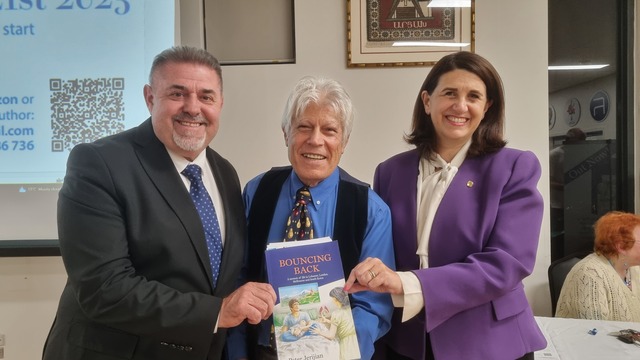Not many people may know about World Sleep Day on 17 March but if you do then good on you.
World Sleep Day’s theme for this year is that sleep is essential for health.
The annual event is used to highlight and remind about the importance of sleep, although it’s a natural part of a human lifespan.
Dr Stephanie Yiallourou a public researcher from Monash University has spent more than 20 years looking into the studies of sleep and its effects.
“When we don’t have a good night’s sleep it can affect our daytime functions, mood, decision making and cause excessive daytime sleepiness.
“There’s a physiological effect of sleep too. It increases our risk of obesity, cardio vascular disease, diabetes and we now understand its role in dementia as well.”
Generally a good night’s sleep is associated with the duration of sleep however Ms Yiallourou says good sleep has to be sufficient in quality as well.
“You can have sufficient duration of seven to eight hours but you may have poor quality sleep within that. Duration and quality is what we recommend for healthy sleep.”
The effect of a lack of good sleep is so great the impact can be apparent immediately the next day.
“If you have a poor night’s sleep that can impact you the next day, it can increase your blood pressure. It can also impact the way your body metabolises energy the next day. For instance, the following morning it will affect how you metabolise your blood sugars.”
Going to bed on time and waking up on time is also vital for our bodies. To understand the importance of sleep in leading a healthy life, it’s also important to know the significance of factors such as timing and duration of sleep.
“Timing matters because our sleep-wake cycle can effect our internal body clock. A lot of our body systems, cells in the brain and body functions to this biological clock.
“If your sleep-wake patterns are out of sync then you can put this body clock out of sync as well and it can have an impact on the way your body functions.”
It’s common to not be able to fall asleep whether that’s due to stress, mundane thoughts or something else.
So what can be done if you can’t sleep at night? That’s a question commonly asked of Ms Yiallourou.
“If you can’t get to sleep one recommendation is don’t lie in bed thinking and trying to sleep, creating the angst of trying to get to sleep.
“One thing you can do is get out of bed in a dark environment, sit still and don’t do anything that will arouse you in any way and when you’re ready to go back to sleep, head back in the bedroom.
“You need to associate the room and the bed with sleep and sleep only.”
According to Sleep Health Foundation if you face difficulties in falling asleep you can try to do the following:
• Talk to your GP
• Don’t try too hard to sleep, let sleep come to you.
• Know sleeping tablets aren’t as helpful as you may think.
• Make sure not to drink too much alcohol or caffeine.
CEO of World Sleep Foundation Moira Jung said the foundation has been celebrating this day through workplace presentations, social and traditional media.
“It’s been going since 2008 and it’s an initiative of the World Sleep Society. It’s an important day worldwide to celebrate sleep and to raise awareness of how important it is for health,” Ms Jung said.







